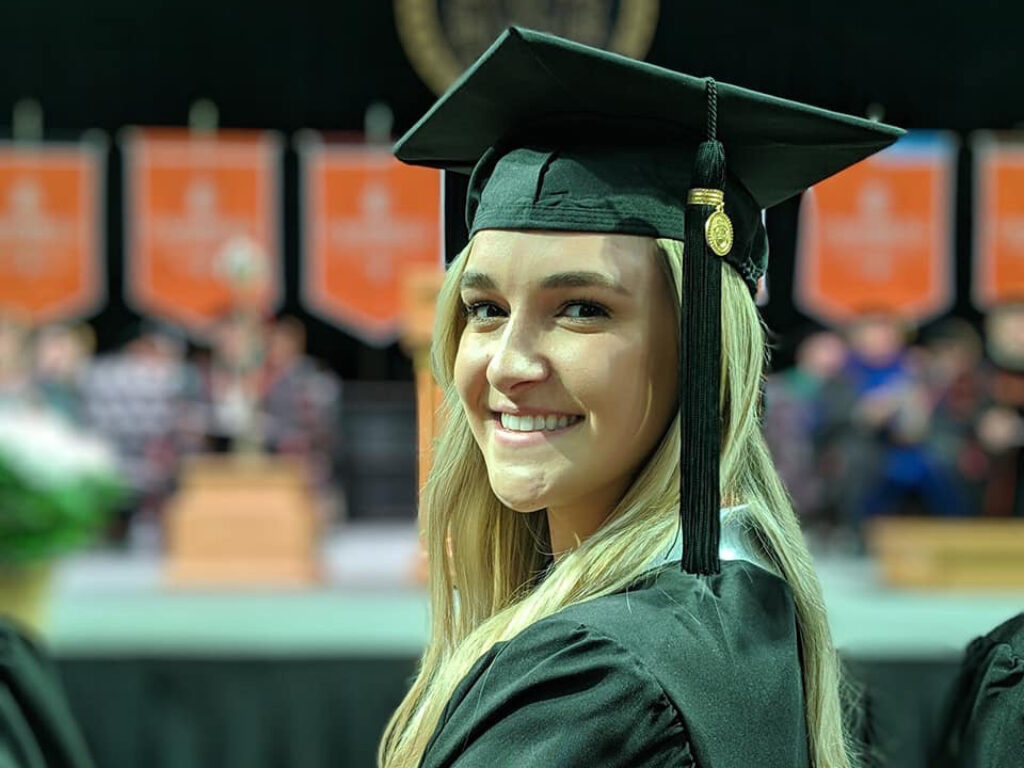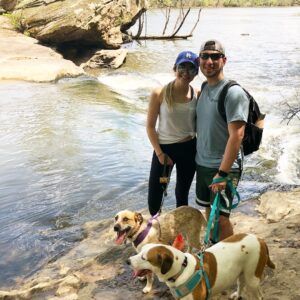Summer Scholars: Meet Allison Howell

The Medical Student Summer Research Scholars (MSSRS) Program is a summer research opportunity open to rising MS-II students only. The project period is 7 weeks during the summer, and students are expected to devote at least 6 full weeks to the project. Students attend weekly work-in-progress sessions and provide the opportunity for MSSRS participants to present their work to student peers. A final report is presented in the form of a poster or oral presentation at a local, regional, or national meeting. The Interprofessional Education Symposium held each spring at Campbell University is an opportunity to present, and all MSSRS participants are encouraged to present a poster at the event.
Name: Alli Howell
Hometown: Cherryville, NC
Undergraduate and Other Degrees: Bachelor of Science in Biology, UNC Charlotte; Master of Science in Biomedical Sciences, Campbell University
About me: When I’m not studying, I love to spend time with my two rescue pups, MJ and Nyla Grey. You can usually find me hanging out in my backyard with them. I’m a bargain shopper, food enthusiast, and I love to buy new plants almost every time I go to the grocery store. I’m also from a rural community in the western part of North Carolina, so I feel right at home here at CUSOM!
MSSRS Research Project: “Transthoracic Vagotomy Treatment Method for Marginal Ulcers in Gastric Bypass Patients”
PI: Paul Enochs MD, Wake Med Bariatric Surgery
Alden Parsons MD, FACS, Wake Med Cardiovascular and Thoracic Surgery, Chair Department of Surgery Wake Med Cary
This study is a retrospective chart review, and I was involved in data extraction from patient medical records. I was responsible for navigating through patient charts and collecting information including patient demographics and additional variables regarding their previous surgical histories. We examined the different risk factors and common variables among patients who developed marginal ulcers following their respective gastric bypass procedures. These ulcers impose severe health consequences and may be refractory to conservative therapy requiring an additional measure of a transthoracic vagotomy (TTV). This procedure involves a robotic-assisted cut of the vagus nerves bilaterally, which in return reduces stimulation to the GI tract to mitigate the amount of acid being produced in the stomach.
Throughout this experience, I became more appreciative of research and the amount of time and effort it requires. Although I worked with a smaller sample size, it may have taken me an entire day to navigate through one or two patient charts and data extraction was a very tedious process. I was also reminded that we should not take our own health for granted; this project was a gentle reminder I hope to carry with me to help improve the quality of life for my future patients.
What advice would you share with current first year medical students? To current MS1 students, it’s going to be hard. Please remember (I also have to remind myself of this) that you are not perfect and no one is. It’s okay to miss exam questions, it’s okay to talk yourself through each step in lab, it’s okay to watch your OSCE and see the errors you have made. Now’s the time to make these little mistakes and ask questions so you can do better in the future. It’s not about being perfect, it’s a process of improving yourself and staying healthy during this time. Focus on what is important to you and the rest will sort itself out.

